I have a db entity which stores the Order Addresses like this...

And I have the BLL classes like this...
public class DeliveryAddress
{
public string Id { get; set; }
public string PersonyName { get; set; }
public string CompanyName { get; set; }
public List<string> AddressLines { get; set; }
public string Zip { get; set; }
public string City { get; set; }
public string CountryCode { get; set; }
}
and another class like this...
public class InvoiceAddress
{
public string Id { get; set; }
public string PersonyName { get; set; }
public string CompanyName { get; set; }
public List<string> AddressLines { get; set; }
public string Zip { get; set; }
public string City { get; set; }
public string CountryCode { get; set; }
}
and I want to map the EF entity to the above classes on the basis of AddressType column. Can anybody explain me how to do that ?
UPDATE
I want to map to OR.DeliveryAddress if the addressType is "Delivery" and to OR.InvoiceAddress if the addressType is "Invoice"
So far, I have been able to do this, but I don't know how to apply condition on the entity mapping level...
Mapper.CreateMap<OrderAddress, OR.DeliveryAddress>()
.ForMember(d => d.City, o => o.MapFrom(s => s.city))
.ForMember(d => d.CompanyName, o => o.UseValue(string.Empty))
.ForMember(d => d.CountryCode, o => o.MapFrom(s => s.countryCode))
.ForMember(d => d.Id, o => o.MapFrom(s => s.id))
.ForMember(d => d.PersonyName, o => o.MapFrom(s => s.name))
.ForMember(d => d.Zip, o => o.MapFrom(s => s.zip));
UPDATE 2
After discussion with @Yuliam Here is the Fiddle that I could come up with for my problem...